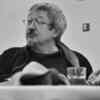Ibn Khaldūn (1332–1406)
Author of The Muqaddimah, an Introduction to History [abridged Rosenthal translation]
About the Author
Called the Father of the Philosophy of History and the Father of Sociology, Ibn Khaldun is considered the first and one of the greatest philosophers of history. Born in Muslim Spain and educated in Tunis, he served as a judge and a secretary in the service of rulers in both Spain and North Africa. show more In 1382 he moved to Egypt, where he became chief judge of Cairo and a lecturer at the Azhar Mosque University. In 1400 he accompanied the Egyptians on their campaign against the Mongol warrior Tamerlane and played a role in the arrangements for the surrender of Damascus. Ibn Khaldun gained much recognition for his seven-volume work on universal history, Kitab al-Ibar (Book of Lessons). In the work, focused mostly on the Muslim world, Ibn Khaldun attempts to treat history as a science. He made his most important contribution in the first part of the work, Muqaddimah (The Introduction), in which he outlines his philosophy of history, analyzing causes of events and setting social, geographic, and economic contexts for historical changes. (Bowker Author Biography) show less
Image credit: Tunesian postage stamp
Series
Works by Ibn Khaldūn
The Muqaddimah, an Introduction to History [abridged Rosenthal translation] (1969) 667 copies, 8 reviews
Le Livre des Exemples. I: Autobiographie - Muqaddima. Appendices : Chapitres de la version primitive de la… (2002) 20 copies
Histoire des Berbères et des dynasties musulmanes de l'Afrique septentrionale. 4 volumes (1956) 7 copies
Histoire des Berbères et des dynasties musulmanes de l'Afrique septentrionale. 4 volumes. Vol. 1 (2014) 6 copies
Ibn Khaldun and Tamerlane,: Their historic meeting in Damascus, 1401 a.d. (803 a. h.) A study based on Arabic… (1952) 3 copies
The Requirements of the Sufi Path: A Defense of the Mystical Tradition (Library of Arabic Literature) (2022) 3 copies
Mukaddime : Osmanlı tercümesi Cilt I / İbn Haldun ; mütercim Pîrîzâde Mehmed Sâhib ; hazırlayanlar Yavuz… (2008) 2 copies
Tasavvufun Mahiyeti 2 copies
Mukaddime : Osmanlı tercümesi Cilt II / İbn Haldun ; mütercim Pîrîzâde Mehmed Sâhib ; hazırlayanlar Yavuz… (2008) 2 copies
Mukaddime : Osmanlı tercümesi Cilt III / İbn Haldun ; mütercim Pîrîzâde Mehmed Sâhib ; hazırlayanlar Yavuz… (2020) 2 copies
Muqaddima (izbor iz djela) 1 copy
MUKADDİME 2 1 copy
تاريخ ابن خلدون 1 copy
Ibn Khaldûn. The Muqaddimah, an introduction to history. Translated from the Arabic by Franz Rosenthal. Selected… (1958) 1 copy
Histoire Des Berbères Et Des Dynasties Musulmanes de l'Afrique Septentrionale, Vol. 2 (Classic Reprint) (2018) 1 copy
Tarikh Ibn Khadum 1 copy
Lessons from History 1 copy
تاريخ ابن خلدون - 8 أجزاء 1 copy
Tagged
Common Knowledge
- Canonical name
- Ibn Khaldūn
- Legal name
- ibn Khaldūn, ʿAbd-ar-Rahmān Abū Zayd ibn Muhammad ibn Muhammad
أبو زيد عبد الرحمن بن محمد بن خلدون الحضرمي - Birthdate
- 1332-05-27
732 AH - Date of death
- 1406-03-19
808 AH - Gender
- male
- Nationality
- Tunisia
- Places of residence
- Spain
Tunisia
Members
Reviews
Lists
Awards
You May Also Like
Associated Authors
Statistics
- Works
- 59
- Members
- 1,079
- Popularity
- #23,834
- Rating
- 3.9
- Reviews
- 11
- ISBNs
- 76
- Languages
- 12
- Favorited
- 6













Here are a few extracts that I found interesting from the Blinkist Summary
Ibn Khaldūn was one of the most prominent Islamic scholars and historians of the Middle Ages, and his opinions were at the intellectual forefront of the age.
Social organization separates humans from animals and leads to human civilization.
The author contends that God gave us something even better than claws and fangs: thought. Our ability to think allowed us to realize that forming communities would assist the survival of humankind....By granting humans the ability to think, God demonstrated His desire for us to settle the world and act as His representatives on earth....Rather than using our claws like lions, we use our hands to create tools, such as lances and swords, with which to defend ourselves.
We must be led by a strong authority to restrain our primal aggression and keep the peace.
Different climates have different effects on individuals and societies.
From the author’s historical perspective, however, human civilization seemed to be limited to a small section of the world....He posited that temperate climates produced greater civilizations.....According to fourteenth-century thought, the people who inhabit more temperate climates are also more temperate–in body and mind, and in character generally.
According to the author, heat expands what he calls the animal spirit. The spirit expands in warmer weather, causing us to feel joy. When it contracts, due to the cold, we feel sadness.
Egyptians on the coast, whose warmer climate is caused by light reflecting off the sea, are more joyful and carefree about the future,....In contrast, people in Fez, surrounded by the cold hills of Morocco, tend to be gloomier and more prone to hoarding food against disaster.
The scarcity or abundance of food influences our body and character.
The author believed that consuming too many high-moisture foods, such as butter and seasonings, is bad for the body and mind.....such foods were also thought to dull the mind, ultimately causing stupidity. According to the author, a North-African ethnic group, the Berbers, who had plenty of seasonings and wheat, were stupider and coarser in body than their counterparts in Morocco, the Masumudah Berbers, who subsisted on a frugal diet of barley.....People who eat the meat of large, strong animals tend to be large and strong themselves....Similarly, those who live off the milk and meat of camels become like the camel: patient, persevering and capable of bearing large burdens.
Certain people have been chosen by God to act as His prophets, the greatest of these being Muhammad....God has chosen certain people, such as the prophet Muhammad, to lead others. These chosen people have certain defining characteristics. For example, they are innocent and seek to propagate religion and divine worship through prayer, alms and charity.
There is only one type of human soul that can achieve angelicity: that of the prophet.
In scriptures like the Torah and the Christian Bible, God revealed Himself to prophets in the form of ideas. In the Qur’an, however, God revealed Himself using actual words.
According to the author, the Qur’an is the only book that holds the written words of God.
“Group feeling” is the force that defines a civilization’s success in battle.....Group feeling depends on the intimacy between group members. The closer the bond, the stronger the group feeling. Though if you’ve been adopted by a tribe in which you have no blood relatives, you’ll experience group feeling as if they were your kin.
People want to be leaders, not followers. When they can’t lead, they become apathetic, and when a civilization becomes apathetic, it perishes.
Royal authority is necessary to maintain order and restrain the evil in us.
But good and evil do not share the same origin. Evil is something we share with animals, and stems from a failure to let religion guide our lives and customs. But how can we curb this innate evil? The answer is through royal authority. Royal authority is granted to those who dominate subjects, collect taxes, send out military expeditions, protect the frontier regions and prove themselves superior to all challengers.....Generally, royal authority only lasts in one “house,” family or tribe for a maximum of four generations:
Urbanization is a feature of sedentary civilizations and is ultimately self-destructive.
Urbanization–that is, the concentration of a population in one area......Settling gives civilizations the ability to more easily defend themselves and more easily acquire resources
But urbanization leads to a sedentary lifestyle, which is ultimately self-destructive. The pursuit of luxuries, for example, can corrupt people’s characters and make them lazy,
the five stages of the life of a dynasty:
First is success, the toppling of opposition after which the ruler serves as role model.
Next is control. Here, the ruler assumes complete control and claims royal authority for himself.
Then comes leisure. This is the period when the fruits of royal authority are enjoyed; monuments and other grand buildings are built and financial security is established, for example. Then there’s peacefulness. The ruler is satisfied with what he and his predecessors have built, and contents himself with following tradition.
At the end of the cycle is squander....During the period of squander, the dynasty splits into the current ruler’s party and a conglomerate of his opponents.
Everyone is out to make a profit.
all people strive to accumulate things and make a profit, that is, income acquired by labor, not by mere chance.....Methods for earning profits can further be divided into the necessary and the noble. Some crafts, like agriculture, tailoring, carpentry and weaving, are necessary for a community’s survival. Others, like medicine and the arts, are noble because of what they aim to achieve.
Humans are superior to all other living beings because of their ability to think and accumulate knowledge. Humans share many qualities with the rest of the animal kingdom. However, unlike animals, we possess some angelic qualities as well. At the root of this distinction is the human ability to think....Human beings’ ability to think leads to the accumulation of knowledge. We aren’t born with knowledge.
There are different types of knowledge: acquired knowledge–like interpretations of the Qu’ran, various theories on child development, scientific pursuits and so on–and knowledge as a state, the kind of knowledge that lies beyond intellect.....Knowledge as a state is how we know the oneness of God:
The key message in this book: A civilization’s path to greatness is riddled with roadblocks: the allure of the sedentary life, a lack of solidarity and our innate propensity for evil are just a few. However, using the Qu’ran as our guide, we can come closer to God and, using Muhammad as our guide, can create long-lasting civilization.
As I said. Not really mind-grabbing and not sufficient to prompt me to go and read the original. But interesting. I rate it two stars.… (more)